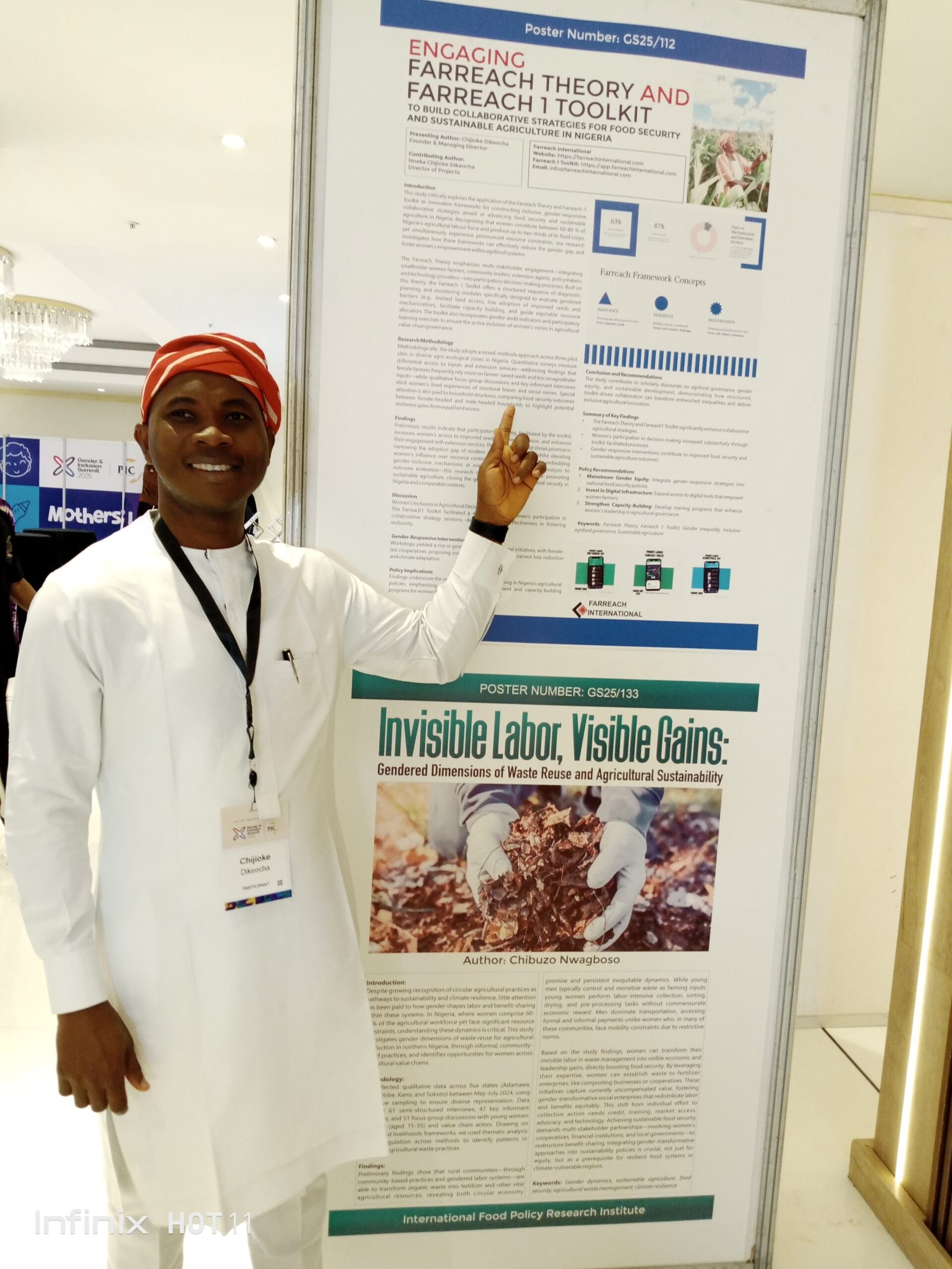A Major Milestone for Farreach International at the Gender and Inclusion Summit 2025!
At Farreach International, our journey has always been driven by a bold vision: to build inclusive, community-led solutions for food security, sustainable agriculture, and social transformation in Nigeria and beyond. Today, we’re incredibly proud to share a new milestone on this journey — one that validates our mission, energizes our team, and opens new doors for impact.
We’re excited to announce that our latest research has been accepted for presentation at the Gender and Inclusion Summit 2025, hosted by the Policy Innovation Centre (PIC) in Abuja on September 3rd and 4th, 2025! 🎉
This is more than an academic honor — it’s an opportunity to share our work with a broader community of policy makers, development professionals, gender advocates, researchers, and innovators committed to advancing inclusive growth across Nigeria and Africa.
📍 Where We’re Presenting
We’ll be showcasing our work at the Abstract Presentation Stand, a space where innovative research and practical tools converge to inform better policies and grassroots action. Our presentation is centered around our study titled:
“Engaging Farreach Theory and Farreach 1 Toolkit to Build Collaborative Strategies for Food Security and Sustainable Agriculture in Nigeria.”
This research represents months of rigorous inquiry, field engagement, and creative experimentation. It weaves together theory, practice, and lived experience to tackle one of the most urgent challenges of our time: how do we ensure food systems are resilient, inclusive, and sustainable in a country as complex and diverse as Nigeria?
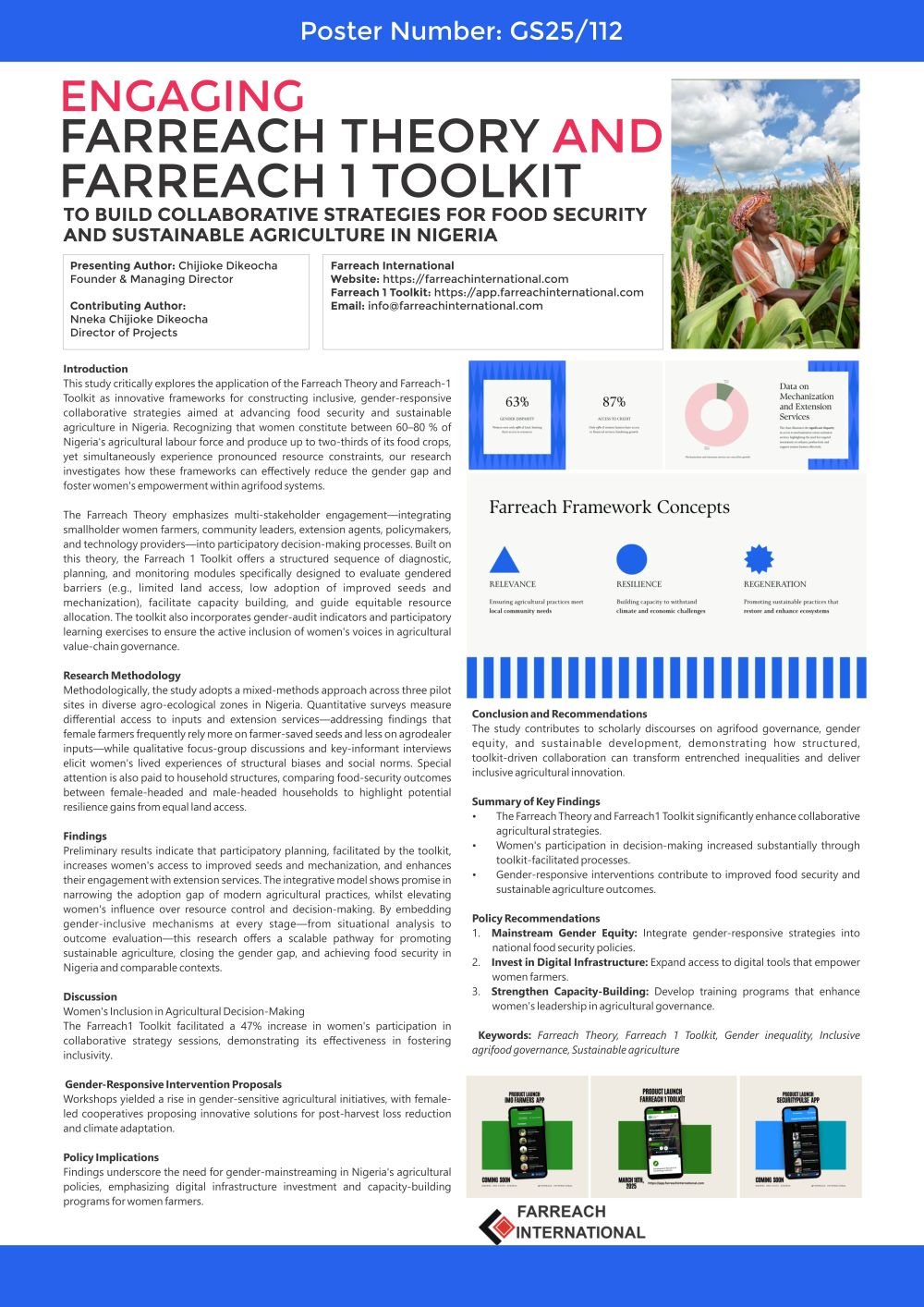
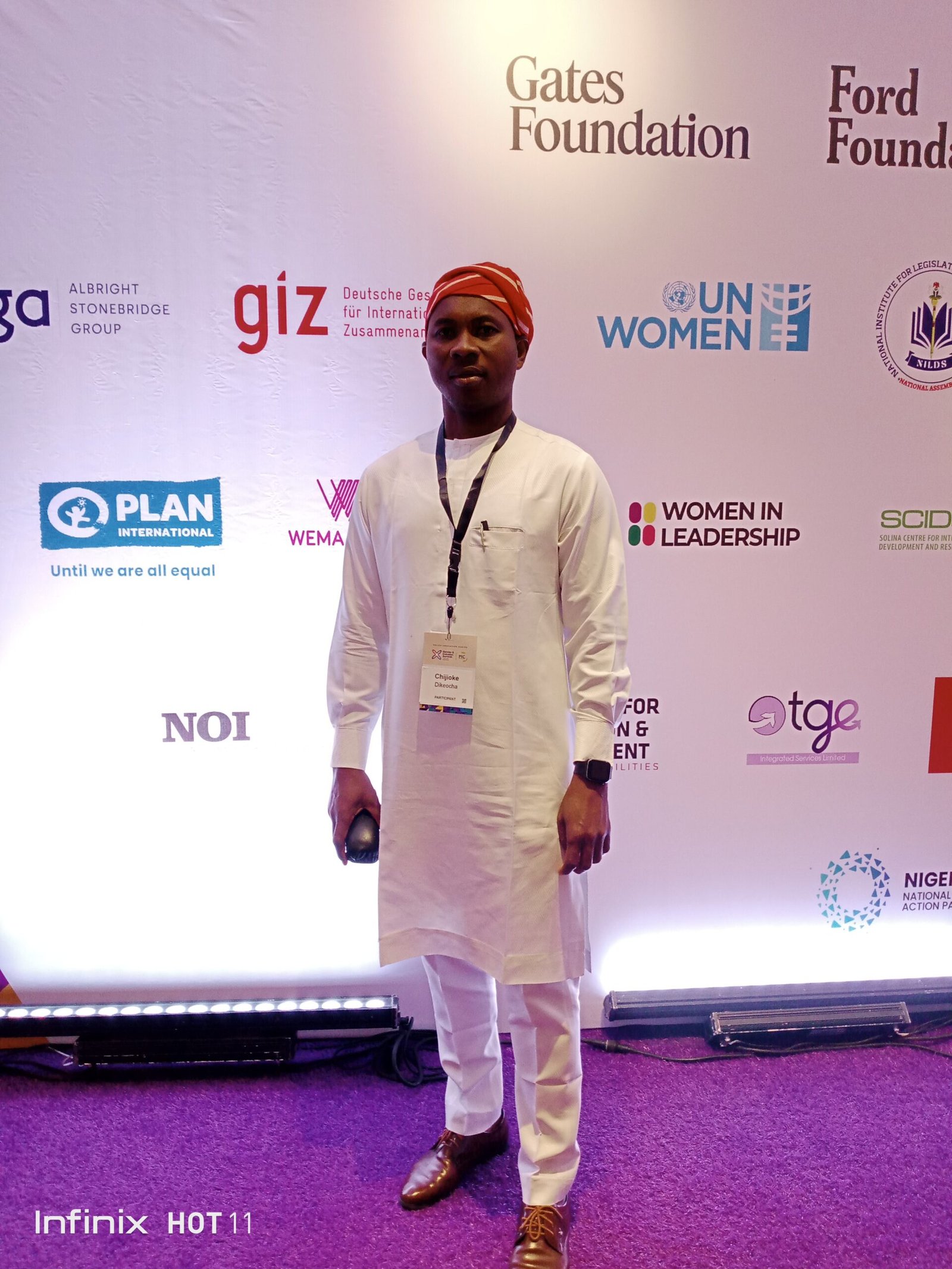
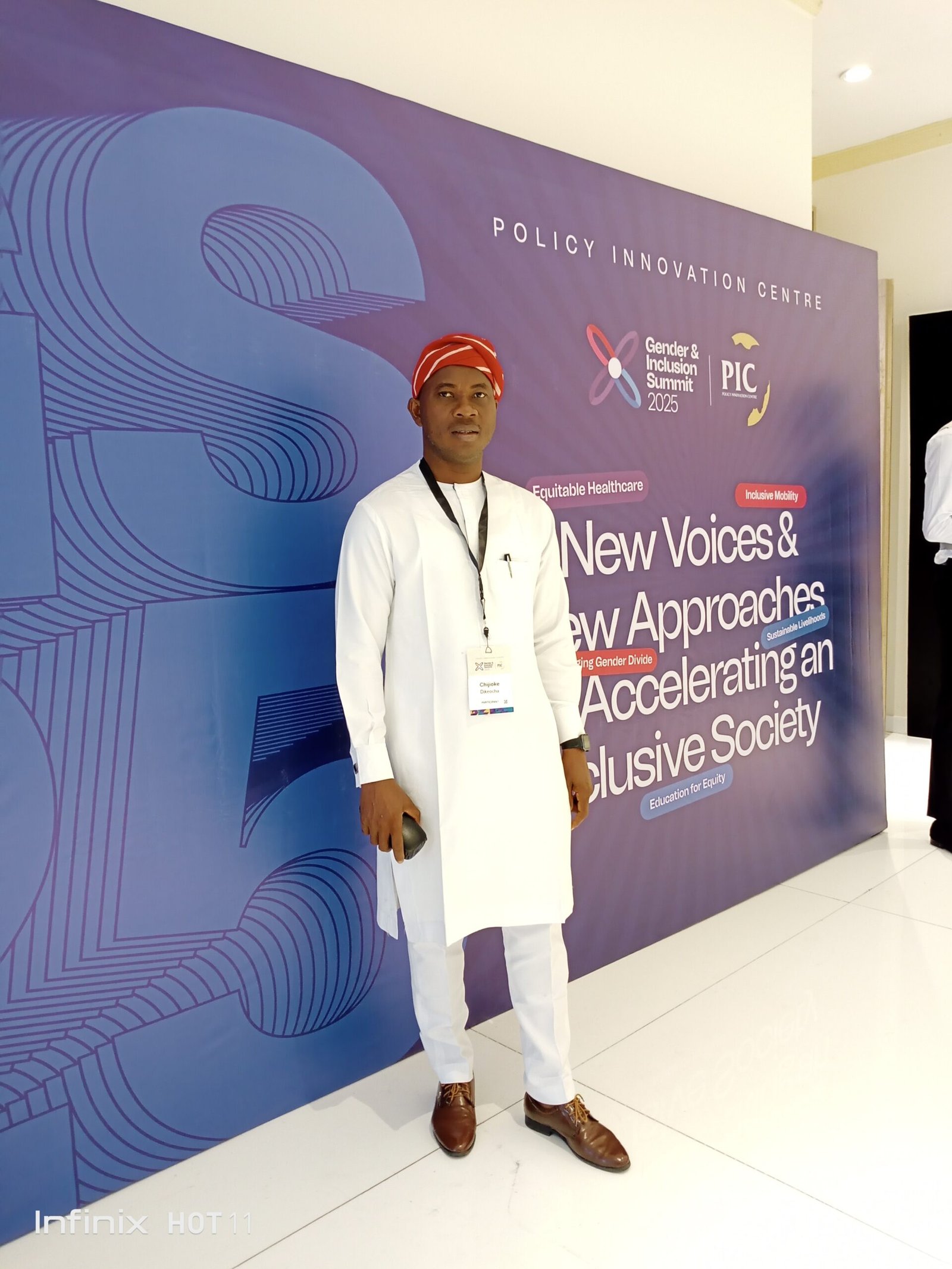
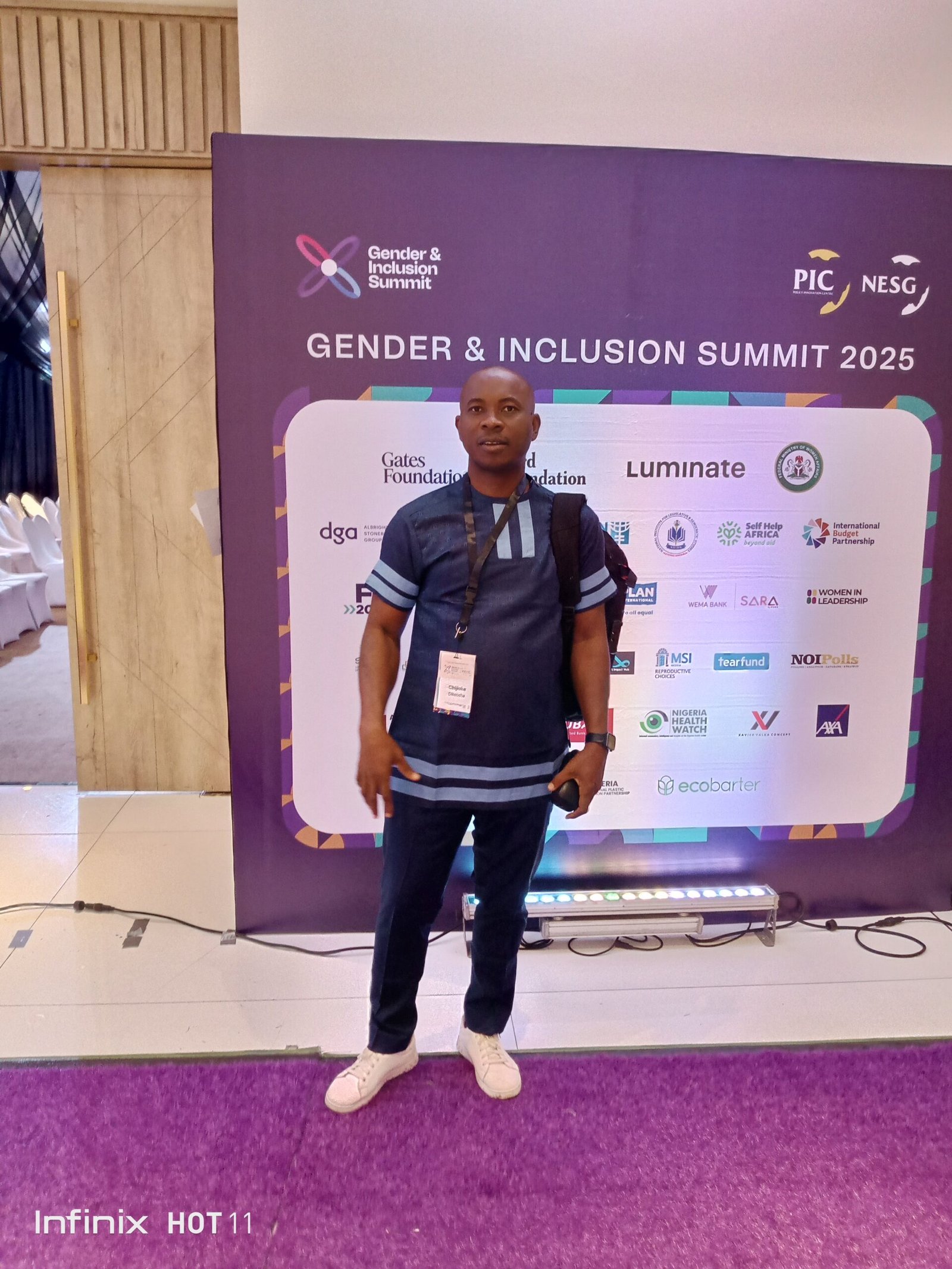
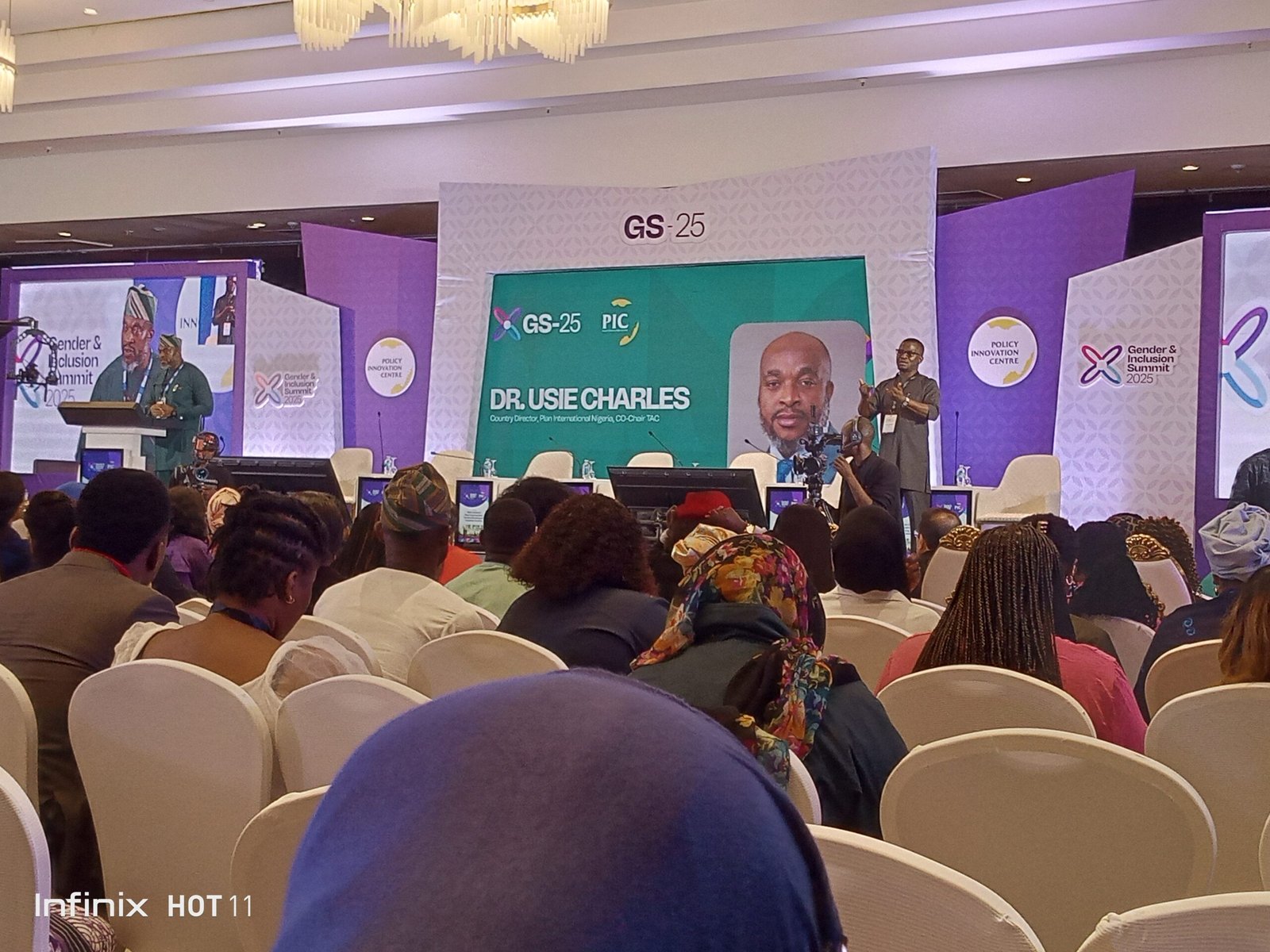
🌾 The Challenge: Food Security in a Changing Nigeria
Food security is not merely about access to calories — it’s about access to nutrition, dignity, livelihood, and stability. In Nigeria, over 25 million people were projected to face food insecurity in 2024 alone. Climate change, conflict, inequality, and weak agricultural systems have all contributed to a growing crisis that affects everyone — but disproportionately impacts women, children, smallholder farmers, and rural communities.
Our food systems are under pressure, and the traditional policy approaches — while well-meaning — have often failed to engage the communities most affected. That’s where our work at Farreach International comes in.
We asked ourselves: What if the solutions to food insecurity and agricultural sustainability already exist within our communities, but just need the right frameworks to be activated and scaled?
💡 The Innovation: Farreach Theory and the Farreach 1 Toolkit
Our research builds on two signature contributions developed by Farreach International:
1. Farreach Theory
Farreach Theory is our systems-thinking approach to solving complex social challenges. It emphasizes collaborative innovation, community agency, intersectionality, and inclusive knowledge generation. Instead of treating communities as passive recipients of aid or policy, Farreach Theory positions them as co-creators of solutions.
2. Farreach 1 Toolkit
The Farreach 1 Toolkit is a practical, adaptable resource designed to translate the principles of Farreach Theory into real-world interventions. It includes tools for:
- Stakeholder mapping and engagement
- Community-driven policy design
- Gender and social inclusion assessment
- Participatory learning and action
- Evidence-based strategy development
This toolkit is already being piloted in multiple local governments across Nigeria, where it’s helping farmers, cooperatives, local leaders, and youth groups design their own food security strategies with measurable results.
Together, the theory and toolkit provide a comprehensive framework for transformation — one that bridges grassroots realities with national policy priorities.
🎯 What the Research Shows
Our presentation at the Gender and Inclusion Summit 2025 will share key findings from our ongoing research and pilot programs, including:
- How inclusive, community-led models lead to more sustainable agricultural practices
- Why gender-responsive strategies improve outcomes across food systems
- Case studies of rural communities that used the Farreach Toolkit to improve yields, reduce food waste, and enhance local collaboration
- Policy recommendations for integrating participatory tools into Nigeria’s national food security agenda
These insights are not just theoretical — they are backed by lived experience, data, and outcomes from the field.
🌍 Why Gender and Inclusion Matter
It’s no accident that this work is being presented at the Gender and Inclusion Summit. Food insecurity is not gender-neutral. Women make up nearly 70% of the agricultural labor force in some regions of Nigeria, yet they often have limited access to land, finance, training, and decision-making power.
Our research emphasizes that any strategy for food security must also be a strategy for gender equity. That means:
- Centering women’s voices in agricultural policy
- Designing tools that account for structural inequalities
- Promoting shared decision-making at household, community, and institutional levels
At Farreach, we don’t see gender as a box to be ticked — we see it as a central pillar of effective development. Inclusion, for us, is not a buzzword. It’s a methodology.
💬 Reflections on the Journey
This milestone is more than just a personal or organizational win — it’s a validation of a different way of doing development. One that is bold, inclusive, and grounded in partnership.
As a founder and innovator, I’m constantly reminded that the real breakthroughs don’t happen in isolation. They happen when people come together — across disciplines, sectors, and lived realities — to co-create something greater than the sum of its parts.
We didn’t get here alone. This work was made possible by:
- The communities who opened their doors and shared their stories
- The partners and collaborators who believed in our model
- The brilliant and passionate Farreach International team who continue to push boundaries every single day
To all of you: thank you.
🙌 What’s Next?
The Gender and Inclusion Summit 2025 is just the beginning. Here’s what we’re looking forward to in the months ahead:
- Scaling the Farreach Toolkit to more regions across Nigeria
- Publishing our full research findings and making our tools open-access
- Engaging with government and development agencies to embed our methods into policy
- Expanding our training programs for community leaders and practitioners
- Hosting co-creation labs to refine and iterate on the toolkit with direct community input
We believe this work belongs to everyone. And we’re committed to making it as accessible, adaptable, and impactful as possible.
🚀 Onward and Upward
In times like these, it’s easy to feel overwhelmed by the challenges ahead. But milestones like this remind us that progress is possible — when we listen deeply, collaborate widely, and innovate boldly.
At Farreach International, we’re not just imagining a more sustainable, inclusive future. We’re building it.
Thank you for being part of this journey.
Let’s keep reaching farther — together.
With gratitude,
Chijioke Dikeocha
Founder, Farreach International
📢 Join the Conversation
We’d love to connect with you at the Gender and Inclusion Summit 2025 or online. Follow us, share your insights, or reach out if you’re interested in collaborating.
📅 Event: Gender and Inclusion Summit 2025
📍 Location: Abuja, Nigeria
📢 Hosted by: Policy Innovation Centre
📚 Abstract Presentation: “Engaging Farreach Theory and Farreach 1 Toolkit…”
#FarreachInternational #FoodSecurity #SustainableAgriculture #GenderInclusion #Innovation #CommunityLedSolutions #GS25 #Nigeria #PolicyInnovation #FarreachTheory #FarreachToolkit #SocialImpact #DevelopmentThatWorks
